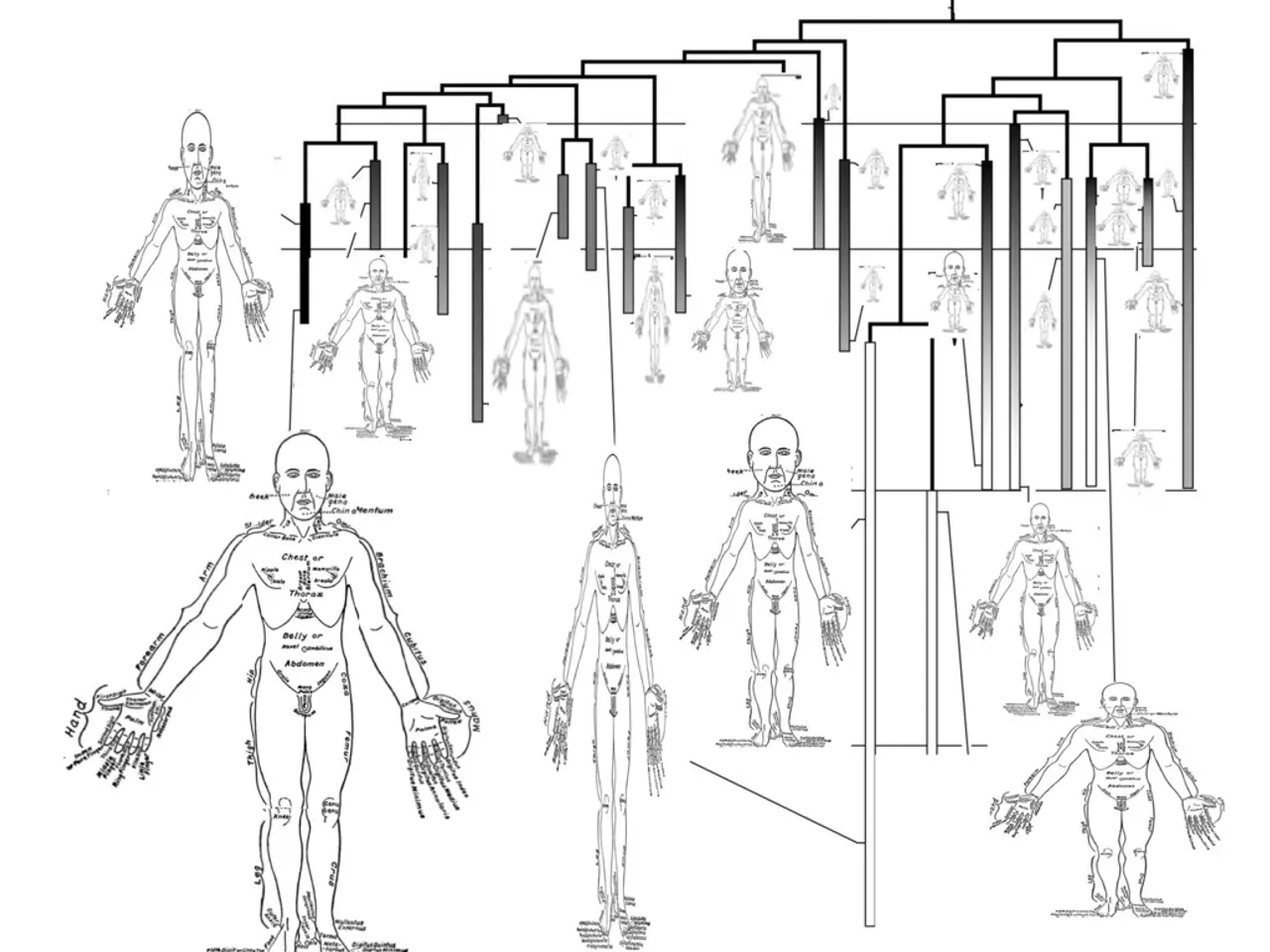Impacts of Hypothyroidism on the Human Body
Hypothyroidism, a condition where the thyroid gland fails to produce sufficient thyroid hormones, can have a significant impact on heart health. This condition affects the endocrine system, which is responsible for producing hormones essential for various bodily functions.
Specifically, hypothyroidism affects the cardiovascular system by causing bradycardia (slower heart rate) and decreased cardiac output. This is due to the lowering of the metabolic rate and sympathetic activity, which leads to weaker heart muscle contraction and reduced oxygen delivery to tissues.
The condition also increases diastolic blood pressure, as vascular resistance can rise due to hypothyroidism, increasing the workload on the heart. Moreover, low thyroid hormone impairs cholesterol metabolism, often leading to high LDL cholesterol and triglycerides, which accelerates coronary artery disease and increases heart attack risk.
In severe or long-standing cases, hypothyroidism can cause dilated cardiomyopathy (weakened, enlarged heart) and congestive heart failure. While the exact impact on arrhythmias is not fully understood, there is some evidence suggesting that hypothyroidism may slightly protect against atrial fibrillation.
It's important to note that untreated hypothyroidism can worsen existing heart conditions and lead to serious cardiac complications. However, appropriate thyroid hormone replacement therapy generally improves cardiovascular outcomes and reduces heart disease risk.
Beyond its effects on heart health, hypothyroidism can lead to a variety of other health issues. These include negative effects on weight, body temperature, energy, skin, hair, and nail health. In females, hypothyroidism can cause premature delivery, irregular periods, and difficulties in becoming pregnant. It can also trigger or worsen conditions related to the central nervous system, such as cognitive difficulties, depression, epilepsy, and Parkinson's disease.
In males, hypothyroidism can affect the reproductive system and reduce testosterone levels. It can also have negative effects on semen quality. Additionally, hypothyroidism can affect the digestive system and reduce metabolism, leading to weight gain.
Individuals with hypothyroidism may be sensitive to foods containing large amounts of iodine. Anyone experiencing symptoms or possible complications of hypothyroidism should speak with a healthcare professional.
In conclusion, hypothyroidism is a condition that can have far-reaching effects on various aspects of health, including heart function. It's crucial to seek medical advice if you suspect you may have hypothyroidism to prevent potential complications and improve overall health.




